- Home
- Robert Jordan
Knife of Dreams Page 2
Knife of Dreams Read online
Page 2
Red-hot, searing fury fountained inside Galad, but with an effort he managed to turn his back on Valda and walk away, already feeding his rage into an imagined flame as his two teachers had taught him. A man who fought in a rage, died in a rage. By the time he reached young Bornhald, he had achieved what Gareth and Henre had called the oneness. Floating in emptiness, he drew his sword from the scabbard Bornhald proffered, and the slightly curved blade became a part of him.
“What did he say?” Dain asked. “For a moment there, your face was murderous.”
Byar gripped Dain’s arm. “Don’t distract him,” he muttered.
Galad was not distracted. Every creak of saddle leather was clear and distinct, every ringing stamp of hoof on paving stone. He could hear flies buzzing ten feet away as though they were at his ear. He almost thought he could see the movements of their wings. He was one with the flies, with the courtyard, with the two men. They were all part of him, and he could not be distracted by himself.
Valda waited until he turned before drawing his own weapon on the other side of the courtyard, a flashy move, the sword blurring as it spun in his left hand, leaping to his right hand to make another blurred wheel in the air before settling, upright and rock-steady before him, in both hands. He started forward, once more in Cat Crosses the Courtyard.
Raising his own sword, Galad moved to meet him, without thought assuming a walking stance perhaps influenced by his state of mind. Emptiness, it was called, and only a trained eye would know that he was not simply walking. Only a trained eye would see that he was in perfect balance every heartbeat. Valda had not gained that heron-mark sword by favoritism. Five blademasters had sat in judgment of his skills and voted unanimously to grant him the title. The vote always had to be unanimous. The only other way was to kill the bearer of a heron-mark blade in fair combat, one on one. Valda had been younger then than Galad was now. It did not matter. He was not focused on Valda’s death. He focused on nothing. But he intended Valda’s death if he had to Sheathe the Sword, willingly welcoming that heron-mark blade in his flesh, to achieve it. He accepted that it might come to that.
Valda wasted no time with maneuvering. The instant he was within range, Plucking the Low-hanging Apple flashed toward Galad’s neck like lightning, as though the man truly did intend to have his head in the first minute. There were several possible responses, all made instinct by hard training, but Byar’s warnings floated in the dim recesses of his mind, and also the fact that Valda had warned him of this very thing. Warned him twice. Without conscious thought, he chose another way, stepping sideways and forward just as Plucking the Low-hanging Apple became the Leopard’s Caress. Valda’s eyes widened in surprise as his stroke missed Galad’s left thigh by inches, widened more as Parting the Silk laid a gash down his right forearm, but he immediately launched into the Dove Takes Flight, so fast that Galad had to dance back before his blade could bite deeply, barely fending off the attack with Kingfisher Circles the Pond.
Back and forth they danced the forms, gliding this way then that across the stone paving. Lizard in the Thornbush met Lightning of Three Prongs. Leaf on the Breeze countered Eel Among the Lily Pads, and Two Hares Leaping met the Hummingbird Kisses the Honeyrose. Back and forth as smoothly as a demonstration of the forms. Galad tried attack after attack, but Valda was as fast as a viper. The Wood Grouse Dances cost him a shallow gash on his left shoulder, and the Red Hawk Takes a Dove another on the left arm, slightly deeper. River of Light might have taken the arm completely had he not met the draw-cut with a desperately quick Rain in High Wind. Back and forth, blades flashing continuously, filling the air with the clash of steel on steel.
How long they fought, he could not have said. There was no time, only the moment. It seemed that he and Valda moved like men under water, their motions slowed by the drag of the sea. Sweat appeared on Valda’s face, but he smiled with self-assurance, seemingly untroubled by the slash on his forearm, still the only injury he had taken. Galad could feel the sweat rolling down his own face, too, stinging his eyes. And the blood trickling down his arm. Those wounds would slow him eventually, perhaps already had, but he had taken two on his left thigh, and both were more serious. His foot was wet in his boot from those, and he could not avoid a slight limp that would grow worse with time. If Valda was to die, it must be soon.
Deliberately, he drew a deep breath, then another, through his mouth, another. Let Valda think him becoming winded. His blade lanced out in Threading the Needle, aimed at Valda’s left shoulder and not quite as fast it could have been. The other man countered easily with the Swallow Takes Flight, sliding immediately into the Lion Springs. That took a third bite in his thigh; he dared not be faster in defense than in attack.
Again he launched Threading the Needle at Valda’s shoulder, and again, again, all the while gulping air through his mouth. Only luck kept him from taking more wounds in those exchanges. Or perhaps the Light really did shine on this fight.
Valda’s smile widened; the man believed him on the edge of his strength, exhausted and fixated. As Galad began Threading the Needle, too slowly, for the fifth time, the other man’s sword started the Swallow Takes Flight in an almost perfunctory manner. Summoning all the quickness that remained to him, Galad altered his stroke, and Reaping the Barley sliced across Valda just beneath his rib cage.
For a moment it seemed that the man was unaware he had been hit. He took a step, began what might have been Stones Falling from the Cliff. Then his eyes widened, and he staggered, the sword falling from his grip to clatter on the paving stones as he sank to his knees. His hands went to the huge gash across his body as though trying to hold his insides within him, and his mouth opened, glassy eyes fixed on Galad’s face. Whatever he intended to say, it was blood that poured out over his chin. He toppled onto his face and lay still.
Automatically, Galad gave his blade a rapid twist to shake off the blood staining its last inch, then bent slowly to wipe the last drops onto Valda’s white coat. The pain he had ignored now flared. His left shoulder and arm burned; his thigh seemed to be on fire. Straightening took effort. Perhaps he was nearer exhaustion than he had thought. How long had they fought? He had thought he would feel satisfaction that his mother had been avenged, but all he felt was emptiness. Valda’s death was not enough. Nothing except Morgase Trakand alive again could be enough.
Suddenly he became aware of a rhythmic clapping and looked up to see the Children, each man slapping his own armored shoulder in approval. Every man. Except Asunawa and the Questioners. They were nowhere to be seen.
Byar hurried up carrying a small leather sack and carefully parted the slashes in Galad’s coatsleeve. “Those will need sewing,” he muttered, “but they can wait.” Kneeling beside Galad, he took rolled bandages from the sack and began winding them around the gashes in his thigh. “These need sewing, too, but this will keep you from bleeding to death before you can get it.” Others began gathering around, offering congratulations, men afoot in front, those still mounted behind. None gave the corpse a glance except for Kashgar, who cleaned Valda’s sword on that already bloodstained coat before sheathing it.
“Where did Asunawa go?” Galad asked.
“He left as soon as you cut Valda the last time,” Dain replied uneasily. “He’ll be heading for the camp to bring back Questioners.”
“He rode the other way, toward the border,” someone put in. Nassad lay just over the border.
“The Lords Captain,” Galad said, and Trom nodded.
“No Child would let the Questioners arrest you for what happened here, Damodred. Unless his Captain ordered it. Some of them would order it, I think.” Angry muttering began, men denying they would stand for such a thing, but Trom quieted them, somewhat, with raised hands. “You know it’s true,” he said loudly. “Anything else would be mutiny.” That brought dead silence. There had never been a mutiny in the Children. It was possible that nothing before had come as close as their own earlier display. “I’ll write out your release f
rom the Children, Galad. Someone may still order your arrest, but they’ll have to find you, and you’ll have a good start. It will take half the day for Asunawa to catch the other Lords Captain, and whoever falls in with him can’t be back before nightfall.”
Galad shook his head angrily. Trom was right, but it was all wrong. Too much was wrong. “Will you write releases for these other men? You know Asunawa will find a way to accuse them, too. Will you write releases for the Children who don’t want to help the Seanchan take our lands in the name of a man dead more than a thousand years?” Several Taraboners exchanged glances and nodded, and so did other men, not all of them Amadician. “What about the men who defended the Fortress of the Light? Will any release get their chains struck off or make the Seanchan stop working them like animals?” More angry growls; those prisoners were a sore point to all of the Children.
Arms folded across his chest, Trom studied him as though seeing him for the first time. “What would you do, then?”
“Have the Children find someone, anyone, who is fighting the Seanchan and ally with them. Make sure that the Children of the Light ride in the Last Battle instead of helping the Seanchan hunt Aiel and steal our nations.”
“Anyone?” a Cairhienin named Doirellin said in a high-pitched voice. No one ever made fun of Doirellin’s voice. Though short, he was nearly as wide as he was tall, there was barely an ounce of fat on him, and he could put walnuts between all of his fingers and crack them by clenching his fists. “That could mean Aes Sedai.”
“If you intend to be at Tarmon Gai’don, then you will have to fight alongside Aes Sedai,” Galad said quietly. Young Bornhald grimaced in strong distaste, and he was not the only one. Byar half-straightened before bending back to his task. But no one voiced dissent. Doirellin nodded slowly, as if he had never before considered the matter.
“I don’t hold with the witches any more than any other man,” Byar said finally, without raising his head from his work. Blood was seeping through the bandages even as he wrapped. “But the Precepts say, to fight the raven, you may make alliance with the serpent until the battle is done.” A ripple of nods ran through the men. The raven meant the Shadow, but everyone knew it was also the Seanchan Imperial sigil.
“I’ll fight beside the witches,” a lanky Taraboner said, “or even these Asha’man we keep hearing about, if they fight the Seanchan. Or at the Last Battle. And I’ll fight any man who says I’m wrong.” He glared as though ready to begin then and there.
“It seems matters will play out as you wish, my Lord Captain Commander,” Trom said, making a much deeper bow than he had for Valda. “To a degree, at least. Who can say what the next hour will bring, much less tomorrow?”
Galad surprised himself by laughing. Since yesterday, he had been sure he would never laugh again. “That’s a poor joke, Trom.”
“It is how the law is written. And Valda did make his proclamation. Besides, you had the courage to say what many have thought while holding their tongues, myself among them. Yours is a better plan for the Children than any I’ve heard since Pedron Niall died.”
“It’s still a poor joke.” Whatever the law said, that part had been ignored since the end of the War of the Hundred Years.
“We’ll see what the Children have to say on the matter,” Trom replied, grinning widely, “when you ask them to follow us to Tarmon Gai’don to fight alongside the witches.”
Men began slapping their shoulders again, harder than they had for his victory. At first it was only a few, then more joined in, until every man including Trom was signaling approval. Every man but Kashgar, that was. Making a deep bow, the Saldaean held out the scabbarded heron-mark blade with both hands.
“This is yours, now, my Lord Captain Commander.”
Galad sighed. He hoped this nonsense would fade away before they reached the camp. Returning there was foolish enough without adding in a claim of that sort. Most likely they would be pulled down and thrown in chains if not beaten to death even without it. But he had to go. It was the right thing to do.
Daylight began to grow on this cool spring morning, though the sun had yet to show even a sliver above the horizon, and Rodel Ituralde raised his gold-banded looking glass to study the village below the hill where he sat his roan gelding, deep in the heart of Tarabon. He did hate waiting for enough light to see. Careful of a glint off the lens, he held the end of the long tube on his thumb and shaded it with a cupped hand. At this hour, sentries were at their least watchful, relieved that the darkness where an enemy might sneak close was departing, yet since crossing from Almoth Plain he had heard tales of Aiel raids inside Tarabon. Were he a sentry with Aiel perhaps about, he would grow extra eyes. Peculiar that the country was not milling like a kicked antheap over those Aiel. Peculiar, and perhaps ominous. There were plenty of armed men to be found, Seanchan and Taraboners sworn to them, and hordes of Seanchan building farms and even villages, but reaching this far had been almost too easy. Today, the easiness ended.
Behind him among the trees, horses stamped impatiently. The hundred Domani with him were quiet, except for an occasional creak of saddle leather as a man shifted his seat, but he could feel their tension. He wished he had twice as many. Five times. In the beginning, it had seemed a gesture of good faith that he himself would ride with a force mainly composed of Taraboners. He was no longer certain that had been the right decision. It was too late for recriminations, in any event.
Halfway between Elmora and the Amadician border, Serana sat in a flat grassy valley among forested hills, with at least a mile to the trees in any direction save his, and a small, reed-fringed lake fed by two wide streams lay between him and the village. Not a place that could be surprised by daylight. It had been sizable before the Seanchan came, a stopping point for the merchant trains heading east, with over a dozen inns and nearly as many streets. Village folk were already getting about their day’s tasks, women balancing baskets on their heads as they glided down the village streets and others starting the fires under laundry kettles behind their houses, men striding along toward their work-places, sometimes pausing to exchange a few words. A normal morning, with children already running and playing, rolling hoops and tossing beanbags among the throng. The clang of a smithy rose, dim with the distance. The smoke from breakfast fires was fading at the chimneys.
As far as he could see, no one in Serana gave a second glance to the three pairs of sentries with bright stripes painted across their breastplates, walking their horses back and forth perhaps a quarter of a mile out. The lake, considerably wider than the village, shielded the fourth side effectively. It seemed the sentries were an accepted matter of every day, and so was the Seanchan camp that had swollen Serana to more than twice its former size.
Ituralde shook his head slightly. He would not have placed the camp cheek-by-jowl with the village that way. The rooftops of Serana were all tile, red or green or blue, but the buildings themselves were wooden; a fire in the town could spread all too easily into the camp, where canvas store-tents the size of large houses far outnumbered the smaller tents where men slept, and great stacks of barrels and casks and crates covered twice as much ground as all the tents combined. Keeping lightfingered villagers out would be all but impossible. Every town had a few tickbirds who picked up anything they thought they could get away with, and even somewhat more honest men might be tempted by the proximity. The location did mean a shorter distance to haul water from the lake, and a shorter distance for soldiers to walk to reach the ale and wine in the village when off-duty, but it suggested a commander who kept slack discipline.
Slack discipline or not, there was activity in the camp, too. Soldiers’ hours made farmers’ hours seem restful. Men were checking the animals on the long horselines, bannermen checking soldiers standing in ranks, hundreds of laborers loading or unloading wagons, grooms harnessing teams. Every day, trains of wagons came down the road into this camp from east and west, and others departed. He admired the Seanchan efficiency at making sure their s
oldiers had what they needed when and where it was needed. Dragonsworn here in Tarabon, most sour-faced men who believed their dream snuffed out by the Seanchan, had been willing to tell what they knew if not to ride with him. That camp contained everything from boots to swords, arrows to horseshoes to water-flasks, enough to outfit thousands of men from the ground up. They would feel its loss.
He lowered the looking glass to brush a buzzing green fly away from his face. Two replaced it almost at once. Tarabon teemed with flies. Did they always come so early here? They would just have begun hatching at home by the time he reached Arad Doman again. If he did. No; no ill thoughts. When he did. Tamsin would be displeased, otherwise, and it was seldom wise to displease her too far.
Most of the men down there were hired workmen, not soldiers, and only a hundred or so of those Seanchan. Still, a company of three hundred Taraboners in stripe-painted armor had ridden in at noon the day before, more than doubling their numbers and requiring him to change his plans. Another party of Taraboners, as large, had entered the camp at sunset, just in time to eat and bed down wherever they could lay their blankets. Candles and lamp oil were luxuries for soldiers. There was one of those leashed women, a damane, in the camp, too. He wished he could have waited until she left—they must have been taking her elsewhere; what use for a damane at a supply camp?—but today was the appointed day, and he could not afford to give the Taraboners reason to claim he was holding back. Some would snatch at any reason to go their own way. He knew they would not follow him much longer, yet he needed to hold as many as he could for a few days more.
Shifting his gaze to the west, he did not bother with the looking glass.
“Now,” he whispered, and as though at his command, two hundred men with mail veils across their faces galloped out of the trees. And immediately halted, cavorting and jockeying for place, brandishing steel-tipped lances while their leader raced up and down before them gesturing wildly in an obvious effort to establish some semblance of order.

 Conan the Unconquered
Conan the Unconquered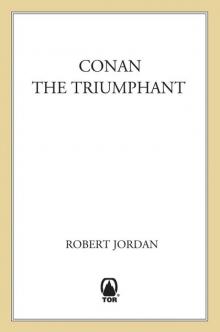 Conan the Triumphant
Conan the Triumphant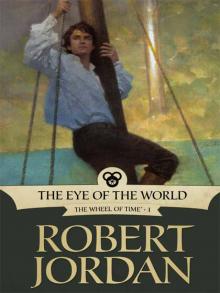 The Eye of the World
The Eye of the World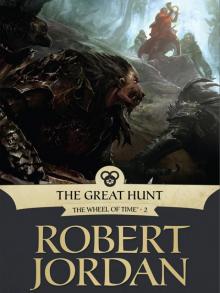 The Great Hunt
The Great Hunt Conan the Victorious
Conan the Victorious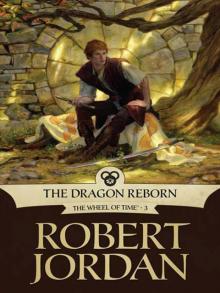 The Dragon Reborn
The Dragon Reborn The Fires of Heaven
The Fires of Heaven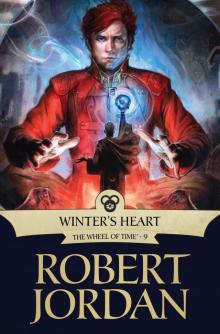 Winter's Heart
Winter's Heart Lord of Chaos
Lord of Chaos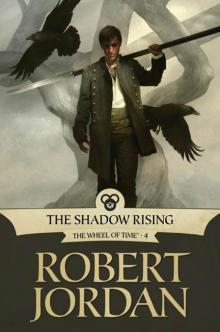 The Shadow Rising
The Shadow Rising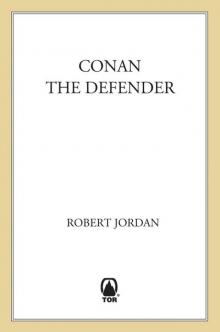 Conan the Defender
Conan the Defender The Strike at Shayol Ghul
The Strike at Shayol Ghul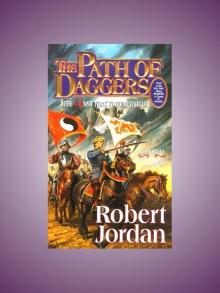 The Path of Daggers
The Path of Daggers A Memory of Light
A Memory of Light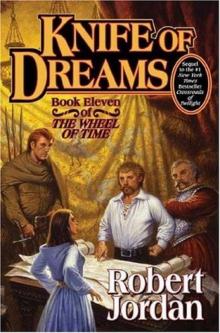 Knife of Dreams
Knife of Dreams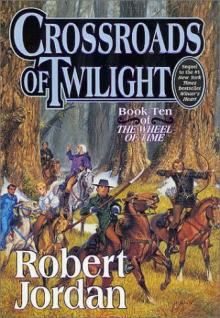 Crossroads of Twilight
Crossroads of Twilight Conan the Invincible
Conan the Invincible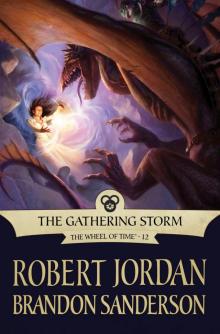 The Gathering Storm
The Gathering Storm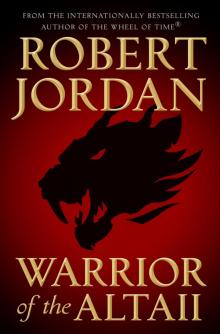 Warrior of the Altaii
Warrior of the Altaii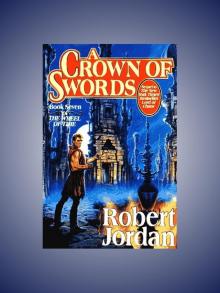 A Crown of Swords
A Crown of Swords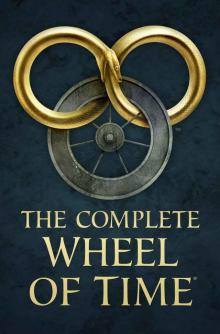 The Wheel of Time
The Wheel of Time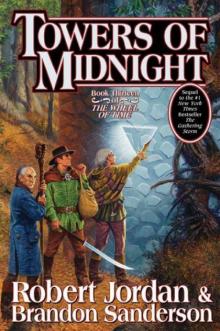 Towers of Midnight
Towers of Midnight Conan Chronicles 2
Conan Chronicles 2 Conan the Magnificent
Conan the Magnificent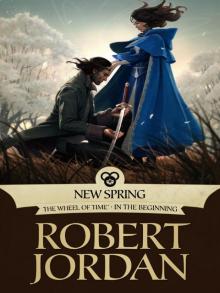 New Spring
New Spring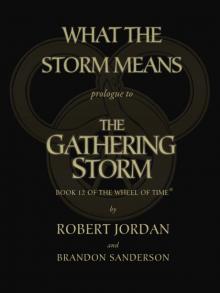 What the Storm Means
What the Storm Means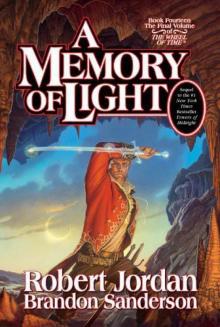 A Memory of Light twot-14
A Memory of Light twot-14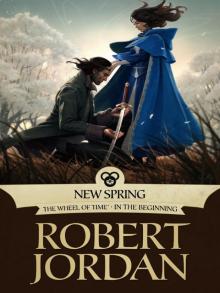 New Spring: The Novel
New Spring: The Novel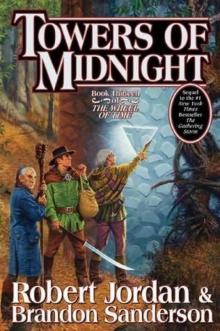 Towers of midnight wot-13
Towers of midnight wot-13 A Memory Of Light: Wheel of Time Book 14
A Memory Of Light: Wheel of Time Book 14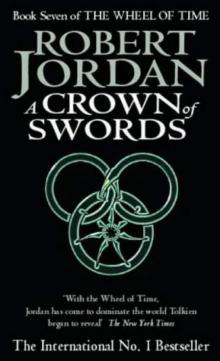 A Crown of Swords twot-7
A Crown of Swords twot-7 Lord of Chaos twot-6
Lord of Chaos twot-6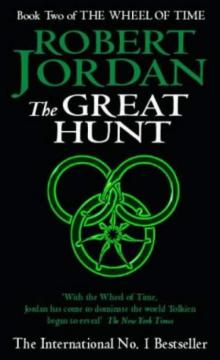 The Great Hunt twot-2
The Great Hunt twot-2 The Shadow Rising twot-4
The Shadow Rising twot-4![Wheel of Time-11] Knife of Dreams Read online](http://i1.bookreadfree.com/i1/04/03/wheel_of_time-11_knife_of_dreams_preview.jpg) Wheel of Time-11] Knife of Dreams
Wheel of Time-11] Knife of Dreams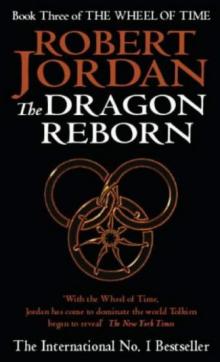 The Dragon Reborn twot-3
The Dragon Reborn twot-3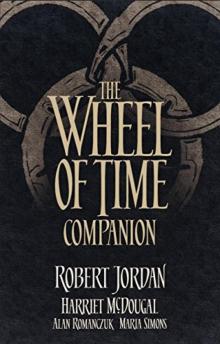 The Wheel of Time Companion
The Wheel of Time Companion The Fires of Heaven twot-5
The Fires of Heaven twot-5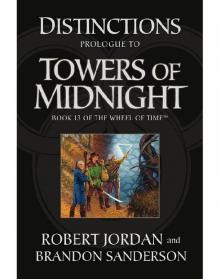 Prologue to Towers of Midnight
Prologue to Towers of Midnight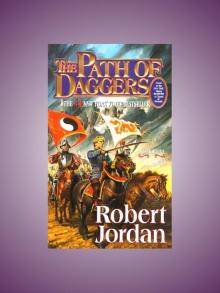 The Path of Daggers - The Wheel of Time Book 8
The Path of Daggers - The Wheel of Time Book 8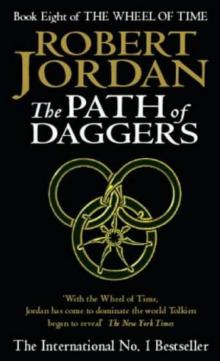 The Path of Daggers twot-8
The Path of Daggers twot-8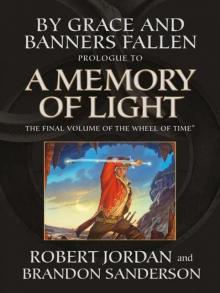 By Grace and Banners Fallen: Prologue to a Memory of Light
By Grace and Banners Fallen: Prologue to a Memory of Light Crossroads of Twilight twot-10
Crossroads of Twilight twot-10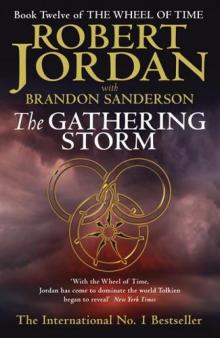 The Gathering Storm twot-12
The Gathering Storm twot-12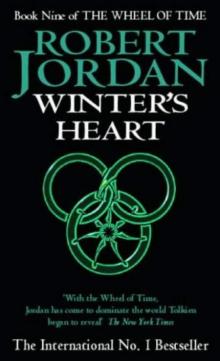 Winter's Heart twot-9
Winter's Heart twot-9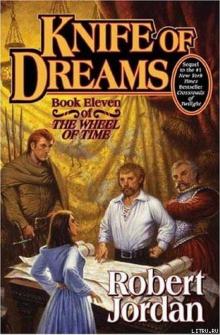 Knife of Dreams twot-11
Knife of Dreams twot-11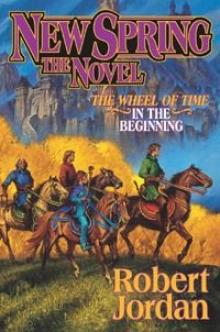 New Spring: The Novel (wheel of time)
New Spring: The Novel (wheel of time)